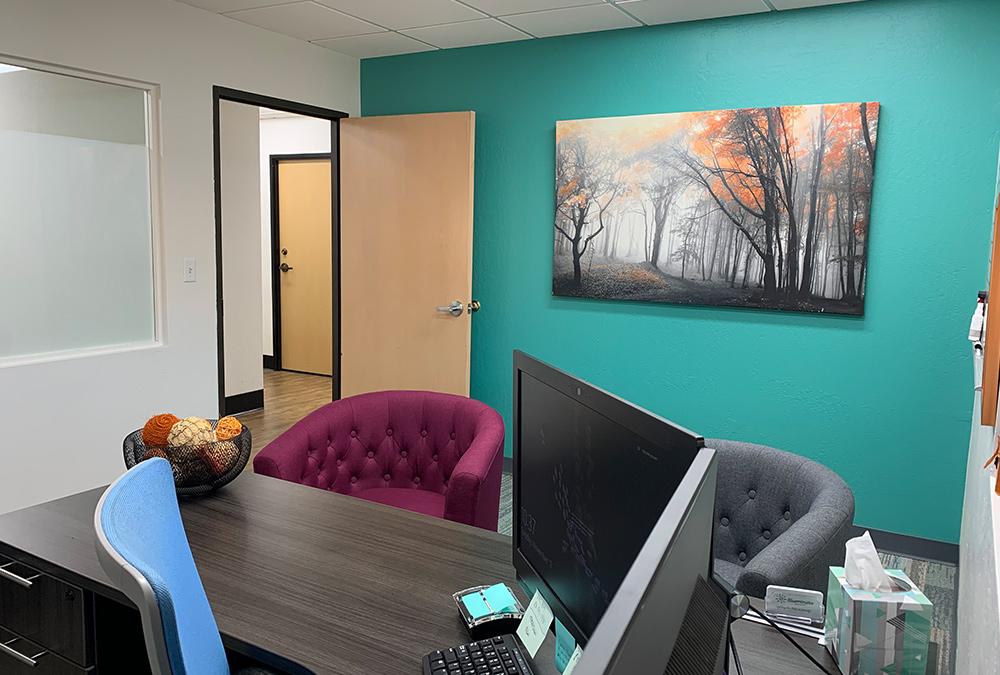Substance abuse constitutes a huge problem for public health in the US, impacting every aspect of our society. According to the Substance Abuse and Mental Health Services Administration, in 2017, there were approximately 20.7 million people aged 12 and up who needed treatment for a substance use disorder. Broken down by age range, this comprises one in 24 adolescents aged 12 to 17, one in seven young adults aged 18 to 25, and one in 15 adults aged 26 or older. However, only 19% of them received treatment. Out of the estimated 18.2 million people who needed substance abuse treatment but did not receive it, 94.3% did not think they needed treatment.
What Is an Enabler?
With so many individuals experiencing substance use disorders but refusing to admit the problem or seek help, the negative effects of addiction impact the millions of users and place a significant strain on their family members. When someone you care about is sick, your first instinct is to help them in any way you can. But what you view as helping can quickly become a dangerous path of perpetuating a problem rather than solving it. The pattern of adverse actions and behaviors that result from this is referred to as enabling. You may have good intentions, but taking on the enabler’s role is severely damaging to both the addicted individual and yourself. For the health and well-being of everyone involved, the goal is to determine how to stop enabling.
Are You Enabling Addiction in a Loved One?

Most enablers mistakenly believe that they are truly helping their loved ones, but ultimately their behavior is encouraging them to continue substance use. Enabling can sometimes stem from codependency, a dysfunctional pattern in which the spouse or family member of an addicted individual is manipulated, accepting love and approval in exchange for providing care. What begins as small steps in a well-meaning attempt to keep your loved one happy will undoubtedly escalate, resulting in you shouldering the burden of their addiction while they avoid responsibility.
Living in an enabling, codependent relationship allows the addicted person and their destructive behaviors to dominate your life. This causes substantial harm to both parties. The enabler neglects their own needs and self-care, expending all their energy trying to shield the addicted person from the consequences of their addiction. The addicted person does not have the motivation to get well when there is no obligation or sense of urgency.
When left unchecked, enabling is extremely detrimental and dangerous. Addiction is a powerful, progressive illness. Substance use alters the personality and behavior of the addicted person, eventually resulting in the exclusion of all other parts of life. The only thing they can think about or care about will be using, and they often have no problem neglecting or hurting anyone around them they can exploit in the pursuit of their addiction. This leads to anger and resentment among the enabler, which may further push the addicted person away and into substance use to insulate themselves.
Signs You Are Enabling Your Loved One’s Addiction

Because it is so demanding, addiction requires a system of enabling to be sustainable. While not every addiction is the same, and not every enabler fits the classic portrayal of codependency, there are many recognizable signs you are enabling your loved one’s addiction. Ask yourself if you identify with any of the following examples of enabling behavior.
Ignoring Questionable Behavior
The first red flag ignores negative and dangerous behavior, everything from overlooking issues to a total denial of the problem. Behavior typical of someone experiencing substance use disorder includes withdrawing from social obligations, neglecting work or being fired, impulsive behavior, lying, intense mood swings, sneaking out of the house at all hours, being secretive about their friends or activities, or drastic change in appearances such as extreme weight loss or lack of personal hygiene.
Denial and Making Excuses
When you don’t want to admit that someone you love is addicted to drugs or alcohol, you will buy into the excuses they give you and will make excuses for them to others and yourself. You may view them as a victim, blaming other people or external circumstances for their problem. Excuses such as “they had a bad day” or “they’re feeling very stressed out right now” make the problem seem temporary when in all reality, it has become routine. Facing the addiction is so overwhelming it can seem impossible to know where to begin, or maybe you have tried bringing up the issue with your loved one, and it caused tension, so denial becomes a form of self-protection.
Covering Up for Addicted Person’s Behavior
While using a drug, the addicted person’s ability to think clearly and make rational decisions is drastically impeded. After using a drug or during periods of withdrawal, they can seem fatigued, sick, or irritable. They cannot perform the tasks expected of them and need you to come to the rescue repeatedly. If you are enabling them, you will accept responsibility for their unhealthy behavior and pick up the slack to keep the peace, including lying on their behalf, loaning them money, or paying their bills. You may work more hours to afford to help them out financially, take on more household duties, watch their children because they’re too intoxicated to function, bail them out of jail, or call in sick for them, so they don’t get in trouble at work.
Prioritization of the Addicted Person
You prioritize the addicted person above everything else, neglecting your physical, mental, spiritual, social, and financial needs to help them with whatever they need. This can mean neglecting other important relationships or allowing the addicted person to neglect or abuse their children. You provide them with money even though you know they will likely spend it on drugs.
Difficulty Expressing Your Emotions or Acting Out of Fear
You find yourself downplaying or shutting off your emotions rather than sharing how harmful their addiction has become. You ignore the problem and cautiously avoid any confrontation, primarily out of fear. This includes giving them chance after chance, so you don’t lose them. Even if you kick them out of the house, you may not follow through or will take them back because you’re afraid of where they will end up. If the addicted person becomes abusive, this adds another dimension of fear.
Resentment of the Addicted Person
When you are constantly doing things for the addicted person that they should be doing themselves, often without acknowledgment or appreciation, you will eventually grow resentful. You resent the responsibilities you carry, and you resent the addicted person for how much their addiction controls your life. You feel unable to discuss your true feelings, so you continue ignoring them and hoping things will change, despite all evidence to the contrary.
Believing They Can Overcome Addiction Alone
It may seem optimistic but believing an addicted person can overcome their addiction on their own is also a form of denial and avoidance. Beating an addiction without assistance or substance abuse treatment is incredibly challenging. Even admitting they have a problem can be a seemingly insurmountable obstacle, let alone getting the help they need. Do your research and find treatment options in your area, then share this information with your loved one so that they can access this vital, potentially life-saving resource. Remind them of all the things they are sacrificing to their addiction and reassure them that you will be there to help them in recovery.
Using the Substance Yourself
Sometimes the addicted person and the enabler have a history of using drugs or alcohol together, but now one is addicted, and the other is not. The enabler may still want to use the substance in a recreational form, maybe in front of or with the addicted person. This is very counterproductive yet can be quite common, especially in the case of alcohol addiction. The partner or an addicted person may keep a bar at home or drink around them, serving as a powerful trigger. They may also try to convince themselves that only one drink is acceptable, but any amount of a drug for an addicted person can be harmful.
How to Stop Enabling

How can you help your loved one with their addiction without enabling them? The following advice can assist you in breaking out of this toxic role and push your loved one toward the path to recovery:
Set Boundaries
The most important step you can take is to set boundaries. Instead of hindering your loved one from experiencing the adverse effects of their addiction, let them struggle with the consequences of their actions. Setting boundaries requires discipline and persistence. It may seem unhelpful and can be difficult to witness, but the reality of the person’s situation is often the greatest catalyst for change when it comes to addiction.
Be Honest and Transparent
It is also crucial to be honest with yourself and the addict and transparent about your expectations. Just as avoidance is necessary for the addicted person, it is also necessary for the enabler. If you find yourself ignoring signs or lying to support them, you are enabling, not helping. Denial, lying, and manipulation are frequent enablers’ tactics, just as much as those they are enabling. Keeping their secrets allows them to continue abusing drugs and hiding from the reality of their situation.
Follow Through
If you make plans with the addicted person and they refuse to show up or become too intoxicated to participate, do it without them. If you commit to not giving them money, providing last-minute childcare, or allowing them to live in your home, you must stick with it. Consistency is key, as an addict will take any opening for extended manipulation.
Be Proactive, Not Reactive
Take a hard look at yourself and examine your beliefs and behavior. Enabling is an attempt to solve the problem or share a burden without truly considering the long-term results. Try to anticipate the addicted person’s behavior and plan how you will respond. Think about the lessons they will learn from facing their responsibilities. For example, if they show up to work hungover and can’t perform the duties expected of them, what will happen? They could be sent home or, worst-case scenario, be fired. This will create financial strain and serve as an important lesson regarding changing their behavior and seeking help.
Get Help Yourself
Consider exploring help for yourself by enrolling in therapy sessions or checking out self-help groups for loved ones of addicts such as Al-Anon or Nar-Anon. Sharing with others who have been in the same situation can be profoundly helpful and can provide you with a support system for managing your enabling tendencies.
Are You Enabling Addiction in a Loved One? Contact Illuminate Recovery for Help

Substance abuse is a devastating illness with heartbreaking consequences. When someone you love is suffering, you want to do anything you can to help them. But sometimes helping becomes enabling, a destructive and counterproductive process that only extends the addiction. Less than 6% of individuals who need substance abuse treatment will even admit they need treatment, and relapse rates are between 40% and 60%. However, addiction is treatable, and recovery is possible.
If you have found yourself in an enabler’s role, contact us to discuss how we can help you break out of this harmful role and help your loved one come to terms with their addiction. At Illuminate Recovery, we offer various treatment options to help overcome substance abuse, including inpatient and outpatient services, detoxification, individual therapy, group therapy, medication-assisted treatment, dual diagnosis, and relapse prevention. Contact us today to learn how we can help you.




